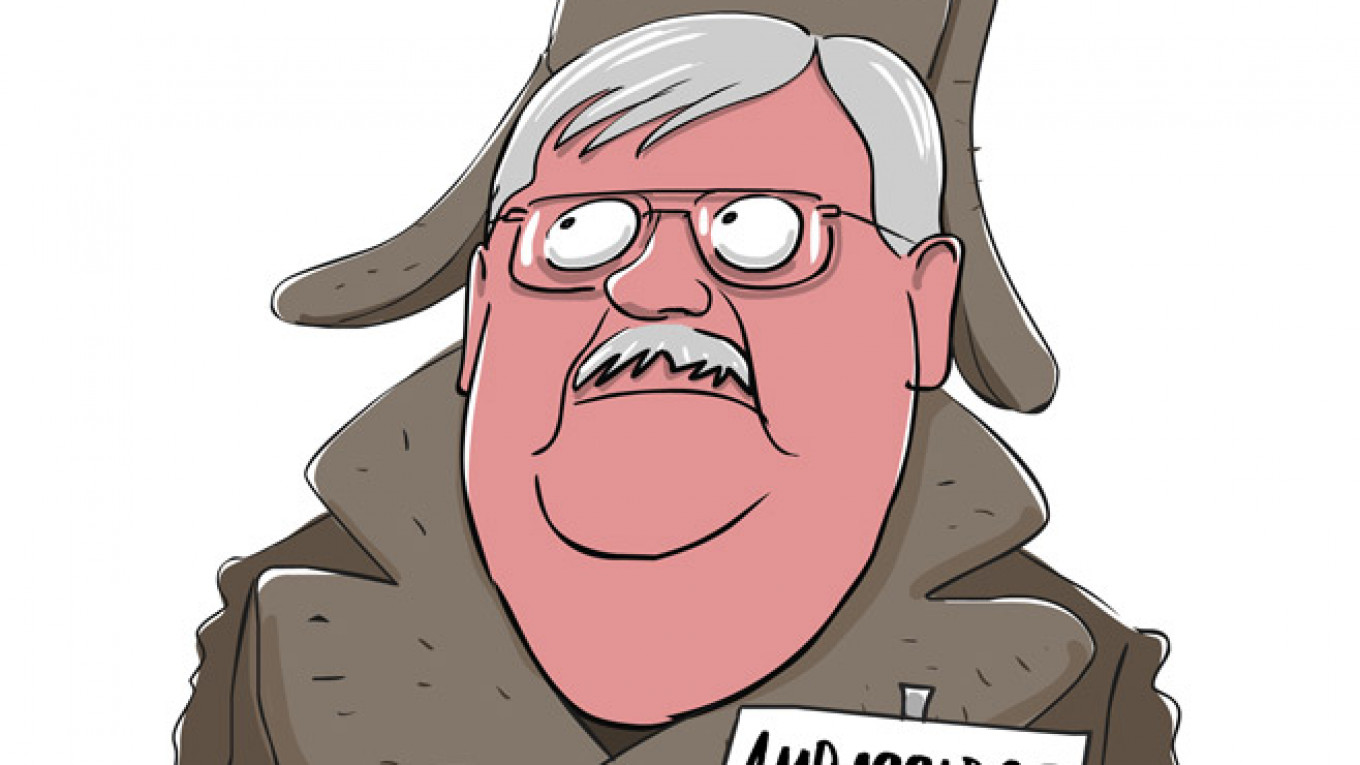In nominating John Tefft to be his ambassador to the Russian Federation, U.S. President Barack Obama chose a gifted and experienced diplomat. Assuming the Senate confirms him — and there is no reason to think it will not — he will have to draw heavily on that skill and expertise to manage a U.S.-Russian relationship that has hit its lowest point since the end of the Cold War.
One key challenge will be confronting Moscow on difficult issues, such as Ukraine, while maintaining cooperation on other questions where U.S. and Russian interests converge, such as Iran. Striking that balance will not prove easy.
Ambassador Tefft certainly brings the right credentials: More than 40 years in the diplomatic service. Ambassador to Ukraine, Georgia and Lithuania. Deputy chief of mission in Moscow. Deputy assistant secretary with responsibility for Russia. Two tours on the Soviet desk. And he has that rare knack for being able to deliver a tough message in a way that the recipient gets it but does not want to shoot the messenger.
That will come in handy because it looks like he will need to deliver a lot of tough messages.
Ukraine tops the list of issues at present. After seizing Crimea, the Kremlin continued to interfere in Ukraine by providing support for the insurgency in Donetsk and Luhansk. This support has included the supply of heavy weapons, one of which apparently was a surface-to-air missile used by the separatists in the Malaysia Airlines shootdown. Tefft has some experience in this area, having served on the Soviet desk in 1983 when a Soviet interceptor shot down a Korean Air Lines 747.
Washington has supported Kiev and ratcheted up sanctions on Russia, in parallel with punitive measures adopted by the European Union. The sanctions have hurt the Russian economy, but they thus far have failed in their political purpose: to get President Vladimir Putin to shut down the weapon flow and press the separatists to stop fighting.
Ukrainian President Petro Poroshenko has proposed decentralizing power, making Russian an official language of Ukraine, and promising not to pursue a deeper relationship with NATO.
These proposals should arguably interest the Kremlin. But the domestic and foreign policy calculations driving Mr. Putin seem instead to be leading him to double-down on the separatists. Ukraine thus could grow as a problem issue on both the U.S.-Russian and West-Russian agendas.
Moldova and Georgia, like Ukraine, have signed association agreements with the European Union. If Moscow proceeds to crank up pressure on those two countries, they could join Ukraine as contentious issues between the West and Russia.
Russia's recent aggressive behavior toward Ukraine has also unnerved NATO allies in the Baltic and Central Europe. As a result, the U.S. and other alliance members have increased their military presence in those countries, and that could become permanent. Russia will not be happy about that.
Greater tensions in U.S.-Russian relations regarding European security questions will add to a problem list that already included wide differences regarding Syria and Russia's stance on human rights. There is also the question about Russian compliance with the 1987 treaty on intermediate-range nuclear forces.
But above and beyond disagreement over specific issues lies Putin's overall foreign policy logic. Too often, it appears that he seeks to define Russian foreign policy in opposition to that of the United States. One readily sees this in Moscow's effort to build the BRICS group as, at least, an implicitly anti-American alignment.
While U.S.-Russian relations have seen happier times, they should not return to the implacable hostility of the Cold War. There remain issues on which cooperation makes sense.
One such question is strategic nuclear arms reductions. The Russians have shown no interest in President Obama's proposal for cuts below the levels of the 2010 New START Treaty. But both sides are implementing the treaty. They share a common interest in keeping the strategic nuclear arms competition capped and predictable, an interest that should only grow as they move into more confrontational times.
The U.S. and Russia likewise share an interest in cooperating in the P5+1 process to prevent Iran from acquiring nuclear weapons. While Tehran may show greater hostility toward Washington, Iran lies much closer geographically to Russia.
Afghanistan also poses a question where U.S.-Russian cooperation makes sense. As U.S. and coalition forces draw down after 2014, neither Washington nor Moscow wants to see a return of the Taliban or chaos. And as with Iran, Afghanistan lies much closer to Russia.
These issues will push the U.S. and Russia toward a measure of cooperation, even if they find themselves in flat-out opposition on other questions, such as Ukraine. The bilateral relationship will elude easy classification as "adversarial" or "cooperative." While the relationship is trending toward more adversarial, important areas remain where U.S. and Russian interests converge.
Therein lies a big challenge: Managing a relationship that balances cooperative and adversarial issues is not easy. That is particularly true for Washington, where we often find it easier to conceptualize policies toward friends or enemies rather than toward those in between. Ambassador Tefft will be a big asset — for Washington and, if they engage him in the right way, for the Russians as well — in trying to get that balance right.
Steven Pifer is a senior fellow at the Brookings Institution and former U.S. ambassador to Ukraine.
A Message from The Moscow Times:
Dear readers,
We are facing unprecedented challenges. Russia's Prosecutor General's Office has designated The Moscow Times as an "undesirable" organization, criminalizing our work and putting our staff at risk of prosecution. This follows our earlier unjust labeling as a "foreign agent."
These actions are direct attempts to silence independent journalism in Russia. The authorities claim our work "discredits the decisions of the Russian leadership." We see things differently: we strive to provide accurate, unbiased reporting on Russia.
We, the journalists of The Moscow Times, refuse to be silenced. But to continue our work, we need your help.
Your support, no matter how small, makes a world of difference. If you can, please support us monthly starting from just $2. It's quick to set up, and every contribution makes a significant impact.
By supporting The Moscow Times, you're defending open, independent journalism in the face of repression. Thank you for standing with us.
Remind me later.








